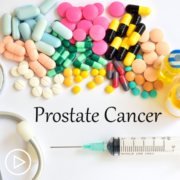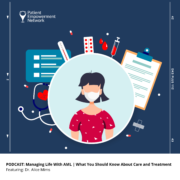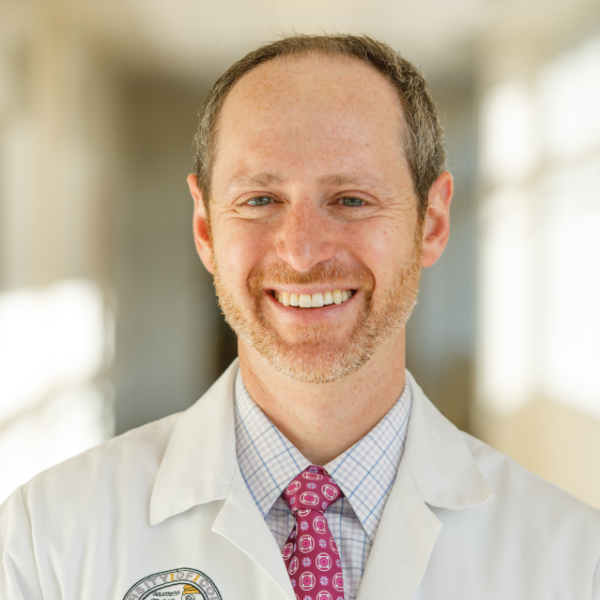What Are Advanced Prostate Cancer Treatment Options?
What Are Advanced Prostate Cancer Treatment Options? from Patient Empowerment Network on Vimeo.
What is advanced prostate cancer and how is it treated? Expert Dr. Tanya Dorff explains advanced prostate cancer and discusses available treatment approaches, including clinical trial considerations.
Dr. Tanya Dorff is Associate Professor in the Department of Medical Oncology & Therapeutics Research at City of Hope. Learn more about Dr. Dorff.
Related Resources:

|

|

|
Transcript:
Katherine:
First, what does it mean to have advanced disease?
Dr. Dorff:
Advanced prostate cancer signals cancer that’s come back after curative intention or has presented de novo in a way that means we don’t currently have a tool to cure it. That’s at least how I view advanced prostate cancer. You could take a broader definition and consider some high-risk localized patients who need multimodal therapy, but to me, it’s really signaling a shift from something we’re aiming to cure versus something we’re aiming to manage, so that can manifest just as a PSA that’s rising, what we call biochemical recurrence, or it can manifest as visible metastatic disease.
Katherine:
What does “locally advanced mean?
Dr. Dorff:
So, “locally advanced” means that it hasn’t metastasized, but it might be involving the local structures, like the seminal vesicles or the bladder or some of the regional lymph nodes, the pelvic lymph nodes.
Katherine:
How is advanced prostate cancer treated?
Dr. Dorff:
The cornerstone of treatment for advanced prostate cancer has really been hormone therapy. I think there’s a lot of negative stuff out there on the internet about hormone therapy that I think does a disservice to patients because hormone therapy is truly very, very effective and, for many men, can be quite livable.
I have patients who live more than a decade on hormone therapy, and they’re running their businesses and they’re raising their grandkids, they’re traveling, they’re running 10Ks, they’re doing all the things that they might want to be doing. That’s not to say there aren’t side effects, but hormone therapy is an effective cornerstone, and I really hope people won’t dismiss it offhand because of the negative things they’ve heard or read about it.
Katherine:
What about other treatment classes?
Dr. Dorff:
Most of our other treatments are really layered on top of hormone therapy. We may get to a point – 10 years from now, I don’t know, sometime in the future – when we don’t start with the hormone therapy, so a lot of patients come in asking about the new radiopharmaceutical, the Lutetium-177-PSMA that got approved last year, or about whether chemotherapy can be used. They can be, but they’re really layered on top of hormone therapy, so the hormone therapy is the first treatment, it’s the most effective right now, and then it’s continued as we swap out – we add a novel hormonal agent like abiraterone (Zytiga), or enzalutamide (Xtandi), or one of the others.
When that is no longer effective, we swap that out, we might use chemotherapy or the radiopharmaceutical. There’s also an immunotherapy that’s been around for more than a decade called sipuleucel-T, and now there’s the targeted therapies – the PARP inhibitors – as well for select patients.
Katherine:
Where do clinical trials fit into treatment?
Dr. Dorff:
That’s a great question. I’m so glad you asked. Clinical trials some people mistakenly believe are your last choice, like you’ve gone through every single treatment we have, and then you go to a clinical trial. That’s not the case. Some of the biggest advances in prostate cancer have been when we’ve taken drugs that work in a more advanced resistance setting, like a second- or third-line, and when we move them right up front, first-line, we dramatically amplify their benefit. We dramatically improve survival.
So, if we don’t think about a clinical trial in the first line, we’re going to miss the opportunity to not only develop those new treatment paradigms, but actually participate in them ahead of when they become the new standard of care down the road.
Another misconception that people have often about clinical trials is that they are always randomized, there’s always a flipping of the coin in assignment of different treatments, and that they may include a placebo. So, most of our clinical trials at this point do not include placebo. Because we have so many effective treatment options, we’re more and more frequently comparing either two drugs against one, so everyone’s getting at least one effective drug, or we’re not comparing at all, but everyone’s getting some new treatment or some combination of treatments when we’re working out dosing in that scenario, like a Phase II.
So, clinical trials are really an option at any stage of prostate cancer, even at diagnosis for localized disease all the way through, and truly, I hope people would consider looking at those as options because that’s where some of the most innovative treatment options are going to become available to them.










